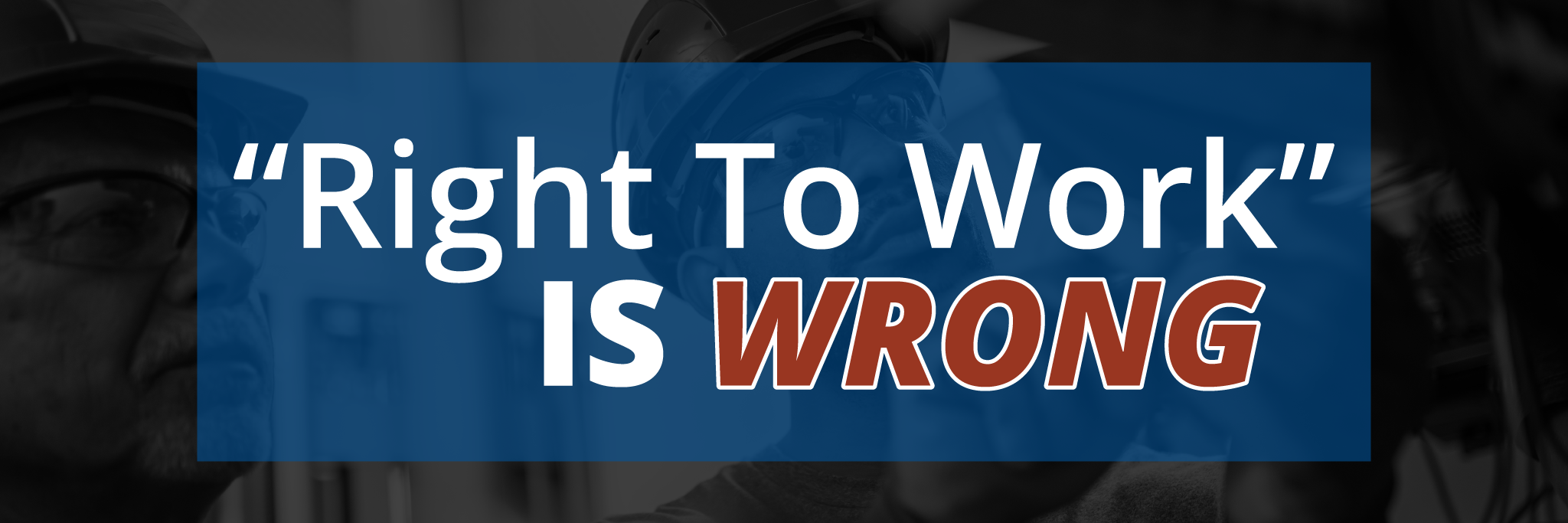
So-Called “Right to Work” is wrong for Maine
The ultimate goal of So-Called “Right to Work” laws is to make unions economically unstable and IBEW 567 opposes to this law.
Unfortunately, across the country, individual states have adopted a number of So-Called “Right to Work” laws, which the IBEW strongly opposes. Additionally, on a national level, the U.S. Supreme Court essentially granted So-Called “Right to Work” nationwide in the public sector in their ruling on Janus v. AFSCME.
These dangerous and deceiving laws are intended to undercut unions and reduce their bargaining power. It allows individuals who are not part of a union, but benefit from the union’s actions, to avoid paying “fair share” fees. Those fees are intended to cover the time spent negotiating a labor agreement from which they benefit, or to provide representation during grievances. In a So-Called “Right to Work” state, the individuals who opt-out of paying “fair share” fees are subsidized by union-paying dues members.
These laws are dangerous because there is already a law in place prohibiting forced unionism. This means workers in America do not have to join a union to get the benefits they provide. There is also a law prohibiting the use of fees for political or religious purposes a worker does not agree with.
In both instances, the purpose of these laws is to eradicate unions by cutting off membership dues.
Furthermore, according to the AFL-CIO, states who have enacted So-Called “Right to Work” laws have a higher poverty rate, are home to more uninsured workers and the risk of workplace death is 49 percent higher.
If a So-Called “Right to Work” law were to be established in Maine, local wages would drop, the quality of construction would fall and jobsite safety would become a second thought.
Make no mistake, there have been and will be more calls for Maine to become a So-Called “Right to Work” state, but IBEW Local 567 is committed to preventing such action in The Pine Tree State.

